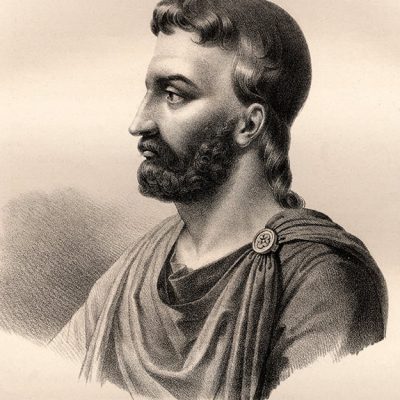Who among us did not struggle in adolescence with colloquially called “pimples”. The same problem also applied to the youth of the ancient world.
The first records of acne can be found in ancient Egypt. In the Ebers’ papyrus (ancient Egyptian medical papyrus, dating from around 1550 BCE, which contains knowledge about the treatment of all kinds of pustules, ulcers, wounds and inflammatory swellings with herbs). The Egyptians used the term aku-t to describe acne. Probably this word is the root word for the current name acne (acne). The Egyptians recommended the use of animal preparations and honey for this type of lesion.
The father of medicine, Hippocrates (a Greek physician born around 460 BCE on the island of Kos, died around 377 BCE), was aware of this disease. The Greek word acme means “spot”, “pimple”. Aristotle (philosopher Greek (born 384 BCE, died 322 BCE) explained this adolescent ailment in great detail.
Acne did not “bypass” also Roman youth. The Romans knew him and healed him. Mineral baths were recommended because it was believed that the pores of the skin opened during a hot bath and could then be cleaned with a sulfur solution. Aulus Cornelius Celsus, a Roman scholar and encyclopedist (born 53 BCE, died c. 7 CE) recommended such baths in the preserved medical work De Medicina. In 3 CE he noted that this disease was associated with adolescence.
In the fourth century CE, the emperor’s physician Theodosius advised acne patients to wipe their “pimples” with a cloth while observing the falling “star”. Then, according to him, the pimples should “fall out of the body”. Aetius, the court physician of Emperor Justinian, was the first to use the word “acne” (acne), which is now used in medicine.
Claudius Galenus (born c. 130 CE in Pergamon, died c. 216 CE), was a Roman physician of Greek origin, anatomist, philosopher; as one of the most remarkable ancient physicians, he had a tremendous influence on the development of medical science. He was the first to suggest using different preparations based on the different consistency of pimples. He divided medicinal substances into ointments, creams, pulps and lotions. In a word, he introduced cosmetics to the world of medicine. Galen recommended honey for mild shifts and a soap-based blend for heavier shifts.









